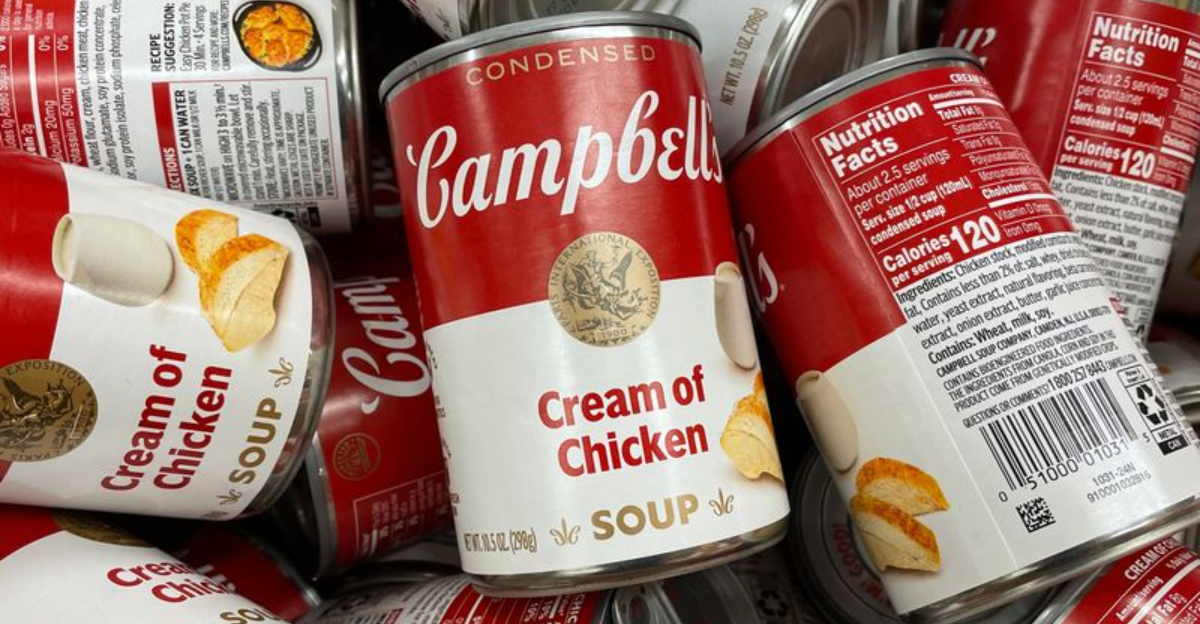Soup Recalls In The U.S. That Affected Millions

Last winter, as I stood in my kitchen stirring a steaming pot of homemade chicken noodle soup, a news segment caught my attention. It reported yet another nationwide soup recall, affecting thousands of American households.
While such incidents might appear uncommon, the reality is that soup recalls have occurred frequently over the years, with several major cases impacting millions of unsuspecting consumers. These events serve as stark reminders of how essential rigorous food safety protocols are.
When these systems break down—due to contamination, mislabeling, or processing errors—the consequences can be severe, ranging from widespread illness to loss of consumer trust.
1. Bon Vivant’s Deadly Vichyssoise Disaster of 1971
A single spoonful changed food safety forever. Bon Vivant’s canned vichyssoise harbored an invisible killer – botulinum toxin – that claimed one life and left several others fighting paralysis in hospital beds across America.
The FDA swiftly ordered the destruction of over 1.5 million cans, creating mountains of condemned soup at disposal sites nationwide. The financial aftermath proved equally devastating, forcing Bon Vivant into bankruptcy within a month.
This catastrophe revolutionized food safety regulations in America, establishing many of the stringent canning protocols still protecting consumers today.
2. Campbell’s Tomato Soup Scare of 2002
My grandmother swore by Campbell’s tomato soup for everything from winter colds to heartbreak. So when Campbell’s voluntarily pulled nearly 19,800 cases from store shelves in 2002, it sent ripples through pantries nationwide.
That’s approximately 237,600 individual cans of their classic 18.7-ounce tomato soup – enough to fill an Olympic swimming pool! The company acted preemptively after identifying potential safety concerns during routine quality checks.
While no illnesses were reported, the recall demonstrated how even America’s most trusted food brands occasionally face manufacturing challenges requiring swift action.
3. Bay Valley’s Sodium Surprise of 2011
Imagine preparing lunch for someone with heart problems, carefully selecting “reduced-sodium” chicken noodle soup, only to accidentally serve them a full-sodium version! This nightmare scenario prompted Bay Valley Foods to recall a staggering 188,181 pounds of mislabeled soup in 2011.
For perspective, that’s equivalent to the weight of about 94 cars! The cans, labeled as reduced-sodium, actually contained regular chicken noodle soup with significantly higher sodium levels.
Health officials scrambled to alert consumers with dietary restrictions, particularly those managing hypertension or heart conditions who relied on accurate sodium content information.
4. Panera’s Foreign Object Fiasco of 2021
Foreign objects in food remain my personal nightmare after finding a staple in my salad years ago. Blount Fine Foods faced this very scenario when they recalled their Panera Bread at Home Chicken Tortilla Soup after discovering unwanted ingredients that definitely weren’t on the recipe card.
The recall affected tens of thousands of pounds distributed through major grocery chains nationwide. Consumers reported finding unidentified foreign materials mixed into their supposedly comforting soup.
Social media erupted with concerned shoppers checking batch numbers and sharing photos of affected products, creating a PR crisis alongside the food safety emergency.
5. BCI Foods’ Inspection Oversight of 2023
Sometimes what’s missing matters more than what’s included. BCI Foods learned this lesson when they shipped over 13,500 pounds of chicken noodle soup without mandatory FSIS inspection, triggering an emergency recall in 2023.
The soup, distributed to restaurants and food service operations across multiple states, bypassed crucial safety checkpoints designed to catch potential contamination. Inspectors discovered the oversight during a routine record review, sending teams scrambling to locate and remove all affected products.
While no illnesses were reported, this incident highlighted how even procedural failures can put thousands of unsuspecting diners at risk.
